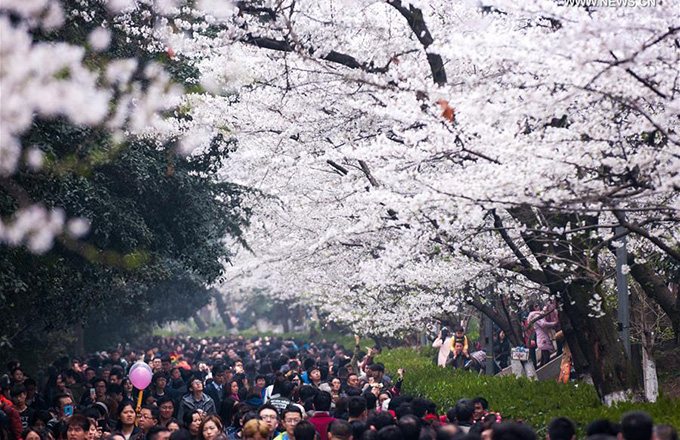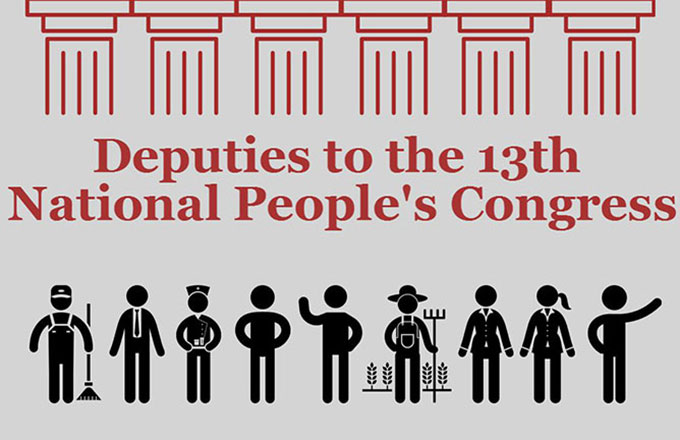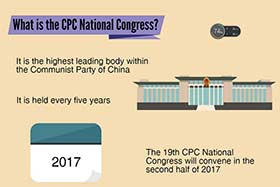China adopts law to regulate tourism
BEIJING - China's top legislature on Thursday adopted a law on tourism in an effort to protect the rights of tourists and clear the way for the industry's sustainable development.
The Standing Committee of the 12th National People's Congress approved the bill at its bi-monthly session, which ran from Tuesday to Thursday, after three readings.
It is the first law adopted by the 12th NPC Standing Committee, which convened its first meeting in March this year. The law is expected to go into effect from October 1.
The long-awaited tourism move is designed to regulate the tourism market, safeguard tourists' rights and interests, ensure reasonable use of resources, and foster the industry's sustainable and healthy growth, the NPC's Law Committee said when explaining the bill during the session.
Addressing tourism woes
The new law outlines measures to address key problems -- unfair competition, wanton price hikes, and forced goods purchases -- which have plagued the travel industry and aroused strong public discontent in China.
The law includes provisions to counter the rampant practice of "zero- or negative-fare tours" in the country, which refers to tour services sold by travel agents at or below cost in order to attract travelers, who are later forced to purchase goods or tip agents during their tour.
Travel agencies may not sell services at "unreasonably low" prices to attract tourists or seek illegitimate profits by arranging for tourists to purchase goods at designated stores or any paid travel sessions other than those listed in the contracts, it says.
The law stipulates that fixed-price tour contracts should clearly list tour itineraries, content and duration of each travel session, and conditions for transportation, hotel and dining services.
Focusing on curbing wanton price increases at some scenic sites, the law introduces a compulsory public hearing procedure before a price rise.
According to the law, tourism sites developed using public resources should "strictly control rises in entrance fees or other additional charges." They will also have to hold public hearings if they plan to raise prices so as to prove it is a necessary and reasonable move.h In addition, the law says tourism sites should issue early warnings to the public if the number of visitors to a site is expected to reach maximum capacity to keep tourists better informed and ensure their safety against the backdrop of the country's tourism craze, which is especially apparent during public holidays.
The law also makes clear the legal consequences of violating the rights and interests of the tourists.
Operations could be suspended for six months for scenic areas that fail to issue early warnings and take necessary measures to ease the flow of visitors or those that receive tourists in excess of the maximum capacity, according to the law.
It also imposes a three-year ban on those whose tour guide certifications have been revoked for luring or forcing tourists to purchase goods or for unnecessarily changing tour itineraries.
Furthermore, the law stipulates that local governments at or above county level should assign or set up special organizations for receiving complaints regarding tourism.
Guo Dongjie, vice president of China's leading online travel agency Ctrip, said the new law will inevitably lead to a reshuffle in the tourism industry.
"Illegal practices will be phased out, the cost of breaking the law will increase, and the market will return to the track of benign competition," he said.
Dream to travel
The new law sets a legal base to realize ordinary Chinese people's dream to travel, said Dai Bin, head of the China Tourism Academy.
Tourism legislation should aim to guarantee citizens' rights to travel, especially for ordinary people, he said.
The new law lays down clauses to ensure tourists' rights to know, choose, get aid, and be respected during their travel. Disadvantaged people including the disabled, senior citizens and juveniles should enjoy favorable policies, it says.
It also includes a provision securing Chinese tourists traveling abroad the right to ask for help and protection from local offices of Chinese institutions if they are in trouble.
The country's tourism sector has undergone dramatic changes over the past decades.
China's domestic travel market has now grown into the world's largest. The country ranks third globally in terms of tourists received from overseas.
Statistics from the country's tourism authorities show that domestic tourists totaled nearly 3 billion in 2012, a record high that is almost three times the combined population of the United States and European Union.
"The new law is important for building China from a big tourism destination to a strong one," said Lo Sui On, executive director of the China Travel Service (Holdings) Hong Kong Limited.
"Setting legal curbs on business operations is good instead of bad news for regular travel agencies," Lo said, as it could deter unfair competition, improve the quality of travel services, and smooth the industry's future development.
China has no specific law concerning tourism, but does have some administrative rules concerning travel agencies and tour guides, which have failed to solve many "deep-rooted problems" regarding the sector.
"We are not expecting the new law to instantly solve the sector's malpractices all at once, but it provides an important legal platform for the sector to take off at a new starting point and for the people to realize the dream to travel," Dai said.





















